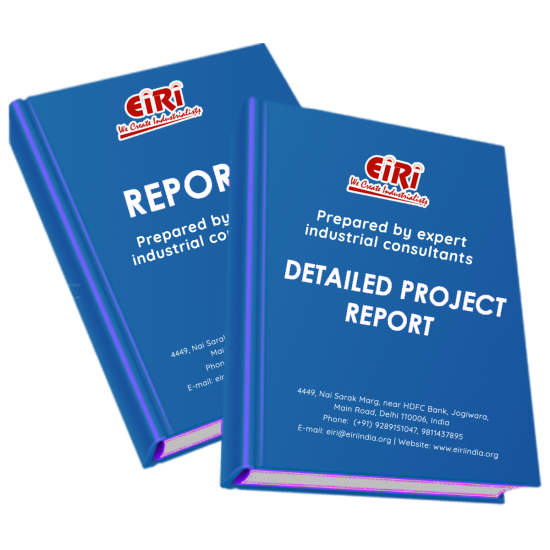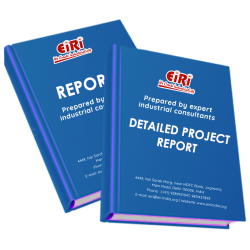Marble Processing Plant (Marble Cutting and Polishing Unit) (Capacity: 600 sq meters per day)

- More than 40 years of experience
- Managed by expert industrial consultants
- ISO 9001-2015 Certified
- Registered under MSME, UAM No: DL01E0012000
- 24/5 Research Support
Get your quesries resolved from an industry expert. Ask your queries before report or book purchase. - Custom Research Service
Speak to the our consultant to design an exclusive study to serve your research needs. - Quality Assurance
All reports are prepared by highly qualified consultants & verified by a panel of experts. - Information Security
Your personal & confidential information is safe & secure.
MARBLE PROCESSING PLANT (MARBLE CUTTING AND POLISHING UNIT)
(EIRI/EDPR/4707) J.C. 2927XL
INTRODUCTION
Marble business in India is presently a rapidly thriving business considering the scope and promising future that it holds for marble business enthusiasts. If targeted in the right market, the marble and granite business can shine and mint huge profits in India’s geographical boundaries. Marbles and granites are considered the vital elements required in the building, and they are widely getting acclaim for the beauty and glittering touch that it gives to the indoor surface within the premise or building.
The demand for marbles and granites in India is soaring high, thereby giving the push to marble business in India and opening the windows of hope for the business enthusiasts who are willing to enter this form of business. In order to witness the accelerating demand for marble tiles in India, you can visit hospitals, colleges, hotels, houses (especially in urban parts of India), and even other places and you will be getting a glimpse of eye-captivating and highly appealing visuals that is a result of usage of marbles in such places.
The attraction value of marble depends upon its smoothness, hardness, durability, and finish, which enhances the value of a building. The Indian government is quite aware of the potential and value of polished tiles, and thus, it has made the marble tiles industry a crucial part of the export thrust domain.
The term marble is derived from the latin work "MARMOR" which itself comes from the Greek root "MARMAROS" meaning these by a shining stone. In ancient times, any stone capable of taking polish, without any regard to its chemical composition was designated as marble. Even the serpentines, alabaster and granites was categorized as marble - if they could take polish. However, in course of time, earth sciences developed a more sophisticated and accurate classification which can categories rocks on the basis of their birth-history.
The marble industry in India has a chequered history. The first marble stone in India was found in the Makrana of erstwhile Rajputana, It was the marble of Makrana that was used in fabulous monumental structure erected centuries ago in India and elsewhere. The world-famous Taj Mahal at Agra, the Victoria Memorial at Kolkata and Jaswant Memorial at Jodhpur bear the testimony to the marble supplied from Makrana. The construction viability of marble stone has been proved beyond doubt as these structures have weathered the vagaries of climate through the centuries.
Gone are the days when marble was considered to be an item of luxury and used only in palaces, temples, mosques and other prestigious buildings. It is now extensively used in ordinary buildings, in drawing rooms, dining rooms, bath rooms and kitchens. Central Public Works Department has specified marble to be used in the Kitchen Platform of even staff quarters.
Once marble was used in the flooring of Supreme Court of India, it was questioned in the Parliament. In reply, a comparative cost study was undertaken which revealed that marble was an item of ultimate economy. Similarly in fascia of multistoreyed buildings, it is economical to use marble which saves high cost of painting and maintenance. The requirement of marble has, therefore, grown tremendously during the last one decade and there is a wide gap between demand and mining output. Rajasthan is pioneer in the mining and processing of marble because the State has been endowed with large deposits of marble.
In the state of Rajasthan, marble is currently commercially mined in nearly eight districts, Nagaur, (Makrana and Borawar), Jaipur (Bhainslana and Kotputli), Bundi (Umar), Sirohi (Abu Road and Khandara), Ajmer (Kishangarh), Pali (Bar and Sendra), Udaipur (Rajnagar, Amet, Agaria, Rikhabhdeo and Kankroli), Chittorgarh (Mandalgarh), Banswara and Dungarpur. Among these places, Makrana is one where marble ahs been mined and processed for a very long time and its quality has earned a world-wide reputation. Another promising regions where marble deposits are fairly large and comparable to Makrana are Udaipur.
COST ESTIMATION
Plant Capacity 600 sq.mt./Day
Land & Building (5 Acres) Rs. 17.50 Cr
Plant & Machinery Rs. 19.60 Cr
Working Capital for 2 Months Rs. 1.16 Cr
Total Capital Investment Rs. 38.67 Cr
Rate of Return 15%
Break Even Point 64%
CONTENTS
INTRODUCTION
USES AND APPLICATION
BLENDING EXTERIOR
BUILDING INTERIORS
STATUARY MARBLE
NOVELTIES
SPECIFICATIONS
STRUCTURAL GRANITES ARE GROUPED INTO TWO TYPES
SPECIFICATIONS FOR STONES GENERALLY DEPEND ON FOLLOWING PROPERTIES
MARKET POSITION OF MARBLE IN ETHIOPIA
PROJECTED DEMAND OF MARBLE PRODUCTS
MARKET SURVEY (GLOBAL)
TABLE 1: MAIN COUNTRIES EXPORTING NATURAL STONE
US AND MIDDLE EAST
FEASIBLE USES OF MARBLE WASTE
1. AS A FILLER MATERIAL FOR ROADS AND EMBANKMENTS
2. FOR MANUFACTURE OF BRICKS
3. MANUFACTURE OF PORTLAND CEMENT
4. MANUFACTURE OF CERAMIC TILES
5. MANUFACTURE OF THERMOSET RESIN COMPOSITES
6. MANUFACTURE OF LIME
7. MANUFACTURE OF ACTIVATED CALCIUM CARBONATE
8. HOLLOW BLOCKS AND WALL TILES
9. MANUFACTURE OF GROUND CALCIUM CARBONATE
OTHER POSSIBLE USES OF MARBLE SLURRY/MARBLE WASTE
INDIAN STANDARD SPECIFICATIONS OF BUILDING STONES
1) IS : 1121
IS : 1121 (PART - 1) 1974
IS : 1121 (PART - III) 1974
IS : 1121 (PART - IV) 1974
2) IS : 1122 - 1974
3) IS : 1123 - 1975
4) IS : 1124 - 1974
5) IS : 1125 - 1974
6) IS : 1126 - 1974
7) IS : 1127 - 1970
8) IS : 1128 - 1974
9) IS : 1129 - 1974
10) IS : 1130 - 1969
11) IS : 1706 - 1972
12) IS : 1401
13) IS : 4121 (1967)
14) IS : 4122 - 1967
15) IS : 4348 - 1973
16) IS : 5218 - 1969
MANUFACTURING PROCESS
1. SAWING:
GANG SAWS
WIRE SAWS
CIRCULAR SAWS
GRINDING AND POLISHING
RUBBING:
GRITTING:
BUFFING:
EDGE CUTTING
CUTTING OF COLUMNS
PROCESS IN DETAILS
PRIMARY SAWING
SURFACE POLISHING
CUT TO SIZE
QUALITY CONTROL
PACKAGING
MARBLE TILES MANUFACTURING PROCESS
PROCESS FLOW DIAGRAM
TYPES OF WASTE GENERATED IN MARBLE QUARRING AND PROCESSING
AND DISPOSAL PRACTICES
TYPES OF WASTE GENERATED
PERCENTAGE OF WASTE GENERATED
QUANTUM OF QUARRYING WASTE PRODUCED WITH RESPECT TO METHOD OF PRODUCTION
QUALITY OF WASTE GENERATED
QUARRYING WASTE DISPOSAL PRACTICES
PERCENTAGE OF WASTE GENERATED
QUANTUM OF PROCESSING WASTE PRODUCED WITH RESPECT TO METHOD OF PRODUCTION
QUALITY OF WASTE GENERATED
PROCESSING WASTE DISPOSAL PRACTICES
ENVIRONMENTAL IMPACT IN MARBLE PROCESSING
ENVIRONMENTAL DAMAGE DUE TO SLURRY
ENVIRONMENTAL DAMAGE DUE TO QUARRYING & TRIMMING WASTE
NEEDED INITIATIVES
DETAILS OF MACHINERIES
SLIDE CUTTING MACHINE
TROLLEY TYPE CUTTING MACHINE
POLISHING MACHINE (HAND OPERATED)
POLISHING MACHINE (PNEUMATICALLY OPERATED)
TWIN HEAD AUTO POLISHER
FOREIGN COLLABORATION
SUPPLIERS OF PLANT & MACHINERIES
SUPPLIER OF PLANT & MACHINERY CIRCULAR SAW
POLISHING MACHING
GRINDING MACHINE
EDGE CUTTING MACHINE
MARBLE CUTTING MACHINE
SUPPLIERS OF PLANT AND MACHINERIES (IMPORTED)
RAW MATERIAL SUPPLIERS
MARBLE BLOCK
D.G. SET MANUFACTURERS & SUPPLIERS
ELECRICAL GOOD & SWITCH MANUFACTURE
FIRE FIGHTING EQUIPMENTS MANUFACTURERS & SUPPLIERS
SUPPLIERS/MANUFACTURERES OF EOT CRANE
ADDRESSES OF RELEVANT GOVERNMENT OFFICES
ADDRESSES OF FINANCIAL INSTITUTIONSREGISTRATION AND LICENSE REQUIRED FOR WATER PARK
OTHER LICENSES REQUIRED FOR THE SETUP:
KEY REGULATIONS AND POLICIES IN INDIA
EXCISE LAWS
LABOUR LAW LEGISLATIONS
PRINCIPLES OF PROJECT LAYOUT
PLANT LOCATION FACTORS
PRIMARY FACTORS
1. RAW-MATERIAL SUPPLY:
2. MARKETS:
3. POWER AND FUEL SUPPLY:
4. WATER SUPPLY:
5. CLIMATE:
SPECIFIC FACTORS
6. TRANSPORTATION:
7. WASTE DISPOSAL:
8. LABOR:
9. REGULATORY LAWS:
10. TAXES:
11. SITE CHARACTERISTICS:
12. COMMUNITY FACTORS:
13. VULNERABILITY TO WARTIME ATTACK:
14. FLOOD AND FIRE CONTROL:
EXPLANATION OF TERMS USED IN THE PROJECT REPORT
1. DEPRECIATION:
2. FIXED ASSETS:
3. WORKING CAPITAL:
4. BREAK-EVEN POINT:
5. OTHER FIXED EXPENSES:
6. MARGIN MONEY:
7. TERM LOANS:
8. TOTAL LOAD:
9. LAND AREA/MAN POWER RATIO:
PROJECT IMPLEMENTATION SCHEDULE
APPENDIX – A:
01. PLANT ECONOMICS
02. LAND & BUILDING
03. PLANT AND MACHINERY
04. OTHER FIXED ASSESTS
05. FIXED CAPITAL
06. RAW MATERIAL
07. SALARY AND WAGES
08. UTILITIES AND OVERHEADS
09. TOTAL WORKING CAPITAL
10. TOTAL CAPITAL INVESTMENT
11. COST OF PRODUCTION
12. TURN OVER/ANNUM
13. BREAK EVEN POINT
14. RESOURCES FOR FINANCE
15. INSTALMENT PAYABLE IN 5 YEARS
16. DEPRECIATION CHART FOR 5 YEARS
17. PROFIT ANALYSIS FOR 5 YEARS
18. PROJECTED BALANCE SHEET FOR (5 YEARS)
How to Make Project Report?
Detailed Project Report (DPR) includes Present Market Position and Expected Future Demand, Technology, Manufacturing Process, Investment Opportunity, Plant Economics and Project Financials. comprehensive analysis from industry covering detailed reporting and evaluates the position of the industry by providing insights to the SWOT analysis of the industry.
Each report include Plant Capacity, requirement of Land & Building, Plant & Machinery, Flow Sheet Diagram, Raw Materials detail with suppliers list, Total Capital Investment along with detailed calculation on Rate of Return, Break-Even Analysis and Profitability Analysis. The report also provides a birds eye view of the global industry with details on projected market size and then progresses to evaluate the industry in detail.
We can prepare detailed project report on any industry as per your requirement.
We can also modify the project capacity and project cost as per your requirement. If you are planning to start a business, contact us today.
Detailed Project Report (DPR) gives you access to decisive data such as:
- Market growth drivers
- Factors limiting market growth
- Current market trends
- Market structure
- Key highlights
Overview of key market forces propelling and restraining market growth:
- Up-to-date analyses of market trends and technological improvements
- Pin-point analyses of market competition dynamics to offer you a competitive edge major competitors
- An array of graphics, BEP analysis of major industry segments
- Detailed analyses of industry trends
- A well-defined technological growth with an impact-analysis
- A clear understanding of the competitive landscape and key product segments
Need Customized Project Report?
- Ask for FREE project related details with our consultant/industry expert.
- Share your specific research requirements for customized project report.
- Request for due diligence and consumer centric studies.
- Still haven't found what you're looking for? Speak to our Custom Research Team
About Engineers India Research Institute:
Note: We can also prepare project report on any subject based on your requirement and country. If you need, we can modify the project capacity and project cost based on your requirement.
Our Clients

Our Approach
- Our research reports comprehensively cover Indian markets (can be modified as per your country), present investigation, standpoint and gauge for a time of five years*.
- The market conjectures are produced on the premise of optional research and are cross-accepted through associations with the business players
- We use dependable wellsprings of data and databases. What's more, data from such sources is handled by us and incorporated into the report
Why buy EIRI reports?
- Our project reports include detailed analysis that help to get industry Present Market Position and Expected Future Demand.
- Offer real analysis driving variables for the business and most recent business sector patterns in the business
- This report comprehends the present status of the business by clarifying a complete SWOT examination and investigation of the interest supply circumstance
- Report gives investigation and top to bottom money related correlation of real players/competitors
- The report gives gauges of key parameters which foresees the business execution





















